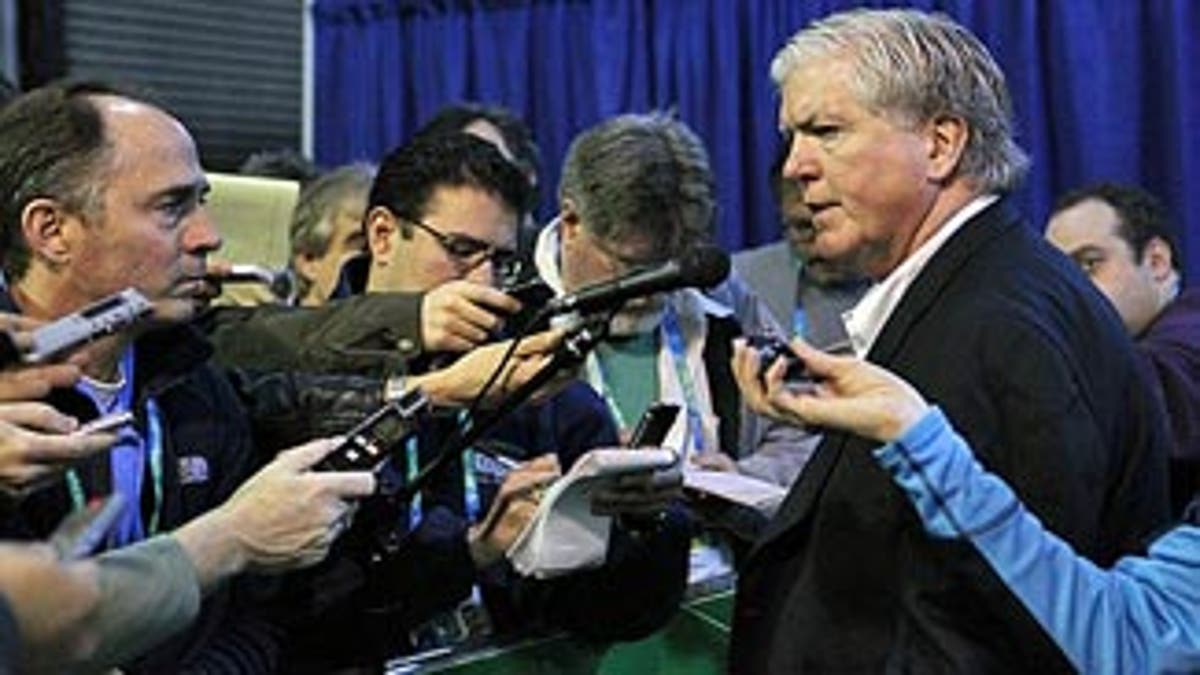
BOCA RATON, Fla. -- In the end, a universal ban on hits to the heads was not the level to which the League's general managers wanted to travel at this week's meetings here.
Instead, they opted to recommend that existing rules governing boarding and charging be more stringently applied. They also believe the threat of stiffer supplementary discipline for those that deliver illegal hits to the head, as well as for repeat offenders in the League's supplemental discipline process, will have the necessary chilling effect to make the NHL workplace a far safer one.
"By the time the season is over there will be 55,000 hits, and a small percentage are resulting in concussions," Bettman said. "We want to eliminate concussions, but the view is, if we can define a rule that makes sense and doesn't cause other problems in the game, we're going to try and do that."
"I don't think it's realistic," Shanahan said. "Defenders defend standing up and forwards attack bent over. There are other things that we can do first."
Increased supplemental discipline and more vigilant application of the existing rules for charging and boarding will be the first attempt to battle against concussions in the sport.
In the end, the majority of the League's general managers were opposed to a blanket ban on hits to the head because of a fear that it would fundamentally change the nature of the game and remove much of the physicality that makes the NHL product different from any other version of the sport.
Toronto GM Brian Burke insisted that hitting is integral to the game and argued passionately for it to remain. To illustrate his point, he talked about one of his own players, Phil Kessel. In his first game with the Leafs after a trade from the Boston Bruins, Kessel was hit with a thunderous -- but legal -- check from Mattias Ohlund. On the play, Ohlund stepped up to deliver a north-south hit and his shoulder made contact with Kessel's head.
"We want that hit in the game," Burke said. "Phil has to be more alert and keep his head up. He didn't get a concussion on that play, but even if he did, I'd have the same view. We want that hit in our game.
"What's distinctive about our game from anywhere else in the world is the amount of body contact. So we have to try to take out the more dangerous hits and make it safer for the players, but keep hitting in the game."
New Jersey GM Lou Lamoriello used an analogy that could resonate with even those fans that have not experienced the physicality and split-second decision-making requirements the sport demands at its highest level.
"It's minimizing the injuries," Lamoriello said. "You can go the other way and say, 'There's no hitting,' but that's not the game. I used the analogy the other day about the accidents on the highway. You want no accidents? Nobody can drive more than 20 miles per hour.
"No one wants to see anybody get hit in the head, but what's a hit to the head? Exactly what are we talking about? We have to be very careful on how we determine that."
Lamoriello and several others pointed out that the soul-searching that has taken place during the past 48 hours is healthy. It is, they argue, important to examine the game and move the lines of acceptability when necessary. The sport, they say, constantly is evolving and the caretakers must evolve with it to keep the game healthy.
Montreal GM Pierre Gauthier came to these meetings seeking to move the line significantly after his player, Max Pacioretty, was seriously injured after absorbing a heavy hit from Boston's Zdeno Chara last weekend. He believes the general managers have moved the line appropriately.
"In the end, a lot of what we do winds up being deterrents, so that we lower the norm; we lower the threshold between what's acceptable and what's not acceptable," Gauthier said. "We've got to be careful not to pinpoint to one area, specifically, in terms of that absolutely is the one that has to be taken care of. A dangerous hit is a dangerous hit is a dangerous hit. We want to eliminate dangerous hits from our game, and I think the will of the group agrees on that."
